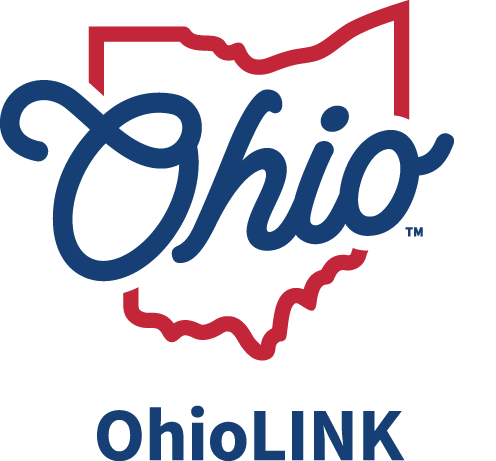As college and university classrooms evolve, so do the tools students and faculty rely on to succeed. What once was a backpack full of textbooks is now more often a laptop or tablet, where digital resources take center stage. However, the cost of textbooks––which average around $145 for a print copy––and online access codes can create barriers for many students trying to pay for their education and for faculty wanting to ensure their courses are accessible and impactful. As educational landscapes and technologies shift, OhioLINK wanted to help rethink how Ohio faculty design their courses, making materials more affordable for all.
Open Educational Resources (OER) are teaching, learning, and research materials that are freely accessible and openly licensed, allowing faculty to adapt and modify them for their courses’ specific needs. While this concept is straightforward, the time it takes to learn about these kinds of teaching tools and identify high-quality materials that meet specific learning objectives can be overwhelming for faculty and instructors. To help alleviate the additional workload of switching to these open materials, OhioLINK introduced OER Course Redesign Grants in 2022.
By providing essential funding and support, the grants enable faculty to rethink their approach to course materials. They receive training on OER and a review of their syllabus from an OER-specialist librarian that can assist in searching for high-quality materials that meet their course’s needs.
Anna Bendo, Director of Affordable Learning at OhioLINK, emphasizes the transformative potential of the OER Course Redesign Grants.
“The grant program allows faculty to take a step back and really examine their courses, understanding how OER can fit in,” Bendo said.
Instead of relying solely on costly textbooks, they can explore various freely accessible resources to enhance student engagement and learning. Since 2022, 146 faculty members from 53 Ohio institutions have taken advantage of the program. If every faculty member who received a grant converted their course to OER there is the potential for students to save $1,626,479 per semester.
“The focus isn’t just on sourcing materials; it’s about ensuring they align with the course’s learning outcomes,” Bendo said.
This alignment is crucial, allowing faculty to create more coherent and effective educational experiences. The support offered by OhioLINK grants plays a pivotal role in guiding faculty through this process, ensuring that the transition to OER is beneficial for everyone involved.
The feedback from faculty members who participated in the grant program has been positive, reinforcing the value of integrating OER into their courses. “The use of OERs is something I have considered for a while, and an opportunity such as this was just the boost that I needed to be able set aside the time to engage and dig deeper,” said Lori Long, Professor and Burton D. Morgan Endowed Chair in Entrepreneurial Studies at Baldwin Wallace University.
Inspired by this success, OhioLINK wanted to expand access by introducing an opportunity for more OhioLINK librarians to become Open Education Network (OEN) OER certified. To do so, OhioLINK funds a cohort of librarians to receive their certifications each year through OhioLINK’s Certificate in Open Education Librarianship Scholarships.
Librarians: A critical resource for faculty support
As OER begins to gain momentum among Ohio faculty and instructors, the role of librarians becomes increasingly vital. Having local OER-expertise allows librarians to serve as resources for faculty within their own institutions, facilitating collaboration and ensuring that faculty have ongoing support as they embrace open educational practices. In total, 18 librarians in the state of Ohio have received the certification. OhioLINK’s 2024 cohort certified eight and the 2025 cohort will fund four more librarians to receive the training next year.
Mandi Goodsett, Performing Arts and Humanities Librarian at Cleveland State University and instructor in the OEN-OER certification program, emphasizes the tailored support librarians can provide.
“Becoming OER certified allows us to understand faculty’s unique challenges and help them navigate the vast array of available resources,” she explained.
This sentiment is echoed by John Canter, Subject Librarian for the Physical Sciences and Mathematics at Ohio University and a 2024 OEN-OER certification recipient, who highlights the collaborative nature of the initiative.
“When librarians are equipped with OER knowledge, it streamlines the process for everyone involved. Faculty can focus on what they do best—teaching—while knowing they have someone to support them in resource selection and implementation,” he said.
This collaboration fosters a partnership in which librarians and faculty work together to create an engaging student learning experience. Marc Jaffy, Scholarly Communications and Affordable Learning Librarian at Franklin University and a 2024 OEN-OER certification recipient, emphasizes that this certification is about building strong relationships.
“Faculty and librarians working together create a more supportive and effective learning environment. We’re not just here to assist; we’re collaborators in enhancing education. It’s exciting to see how these partnerships evolve as we learn more about each other’s needs and strengths,” he said.
The certification also addresses a crucial aspect of OER implementation: sustainability.
“Having librarians OER-certified means that support is ongoing and institution-specific,” Goodsett said. “Rather than relying solely on external resources, faculty have someone on campus who understands the context of their courses and can offer immediate assistance.”
In addition to their direct support for faculty, OER-certified librarians can also conduct workshops and training sessions.
“We want to empower faculty not just to use OER but to feel confident in creating and adapting these resources,” Canter said. “Our training sessions aim to demystify the process of finding and integrating OER into syllabi. It’s about building skills for the long term.”
OhioLINK enhances librarians’ capacity to support faculty through this certification program and empowers educators to redesign their syllabi confidently. This collaborative approach contributes to a more accessible and sustainable educational framework for all students, ensuring that the benefits of OER reach as many learners as possible.
By combining the OER Course Redesign Grants with the expertise of OEN OER-certified librarians, OhioLINK has made it easier for faculty to integrate open resources into their courses. Faculty no longer have to navigate the complexities of OER adoption on their own—they can now rely on the support and expertise of trained librarians.
As Bendo puts it, “This dual approach—providing financial support for course redesign while simultaneously training librarians to assist—creates a holistic system that benefits both faculty and students.”

